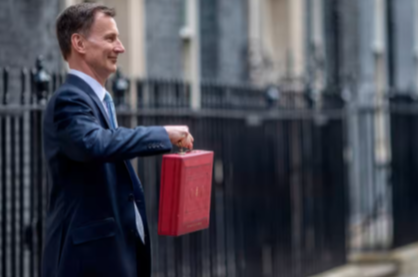Stay informed with free updates
Simply sign up to the UK tax myFT Digest — delivered directly to your inbox.
More than 13,000 wealthy families faced surprise tax bills as high as £1.4mn on lifetime gifts, after the donor died within seven years of making the bequest, data has shown.
The donors had tried to make use of a rule that allows individuals to make gifts of unlimited value free of inheritance tax if the person survives a further seven years. These are known as “potentially exempt transfers” (PETs).
However, a freedom of information request to HM Revenue & Customs found that in the 2020-21 tax year — the latest for which data is available — 13,380 such PETs failed, and the estate had been charged inheritance tax on the gift, as the donor had died within the seven-year period.
Carla Morris, financial planner at wealth manager RBC Brewin Dolphin, which made the FOI request, said: “Inheritance tax is paid by a few but feared by all. Many people resent having to pay tax on income that has already been taxed, especially at a time when they are grieving.”
She had been surprised by the large number of failed transfers, adding that more of her family clients were wanting to pass wealth to younger generations during life rather than on death.
These individuals should start thinking about their estate and financial planning sooner rather than later to ensure the maximum inheritance for beneficiaries, she said. “Leave it until your 80s, and the risk becomes far greater that you won’t survive the full seven years.”
Morris also highlighted the large amount of tax some failed gifts had attracted. According to the FOI data, the top 50 failed gifts averaged £3.6mn after allowances and exemptions, which Morris calculated would trigger an “eye-watering” bill of up to £1.45mn if the PET failed within the first three years.
Inheritance tax is charged at a rate of 40 per cent on the value of an individual’s gift above £325,000, if they die within three years.
If the person making the gift dies after three years, the inheritance tax rate falls to 32 per cent on the value of the gift above the £325,000 threshold. This drops to 24 per cent for gifts made between four to five years before death; to 16 per cent for gifts made between five and six years before death; and falls to 8 per cent for those who die within six to seven years after the gift.
The average failed gift was worth £156,000 after allowances and exemptions, the FOI showed, resulting in a tax bill of £62,400 if the PET had failed in the first three years.
Inheritance tax is regularly selected as the “most unfair” tax in opinion surveys, although in the UK it is paid by a small proportion of estates — less than 4 per cent.
Budget 2024
Nevertheless, the number of estates faced with an inheritance tax bill has been increasing in recent years, jumping by 17 per cent to 27,000 in 2020-21. Britons owed a record £5.76bn in inheritance tax in 2020-21. This was driven by increased mortality during the pandemic and a freezing of the threshold at which inheritance tax applies. The threshold of £325,000 has not been increased since 2009.
While there had been reports the government had been considering scrapping inheritance tax or reducing its rate, these failed to materialise in last week’s Budget.
A government spokesperson said: “More than 93 per cent of estates are forecast to have zero inheritance tax liability in the coming years — however, the tax is forecast to raise almost £10bn a year by 2028-29 to help fund public services millions of us rely on daily.
“Estates of surviving spouses and civil partners can pass on up to £1mn without an inheritance tax liability — significantly more than the average UK house price of £285,000.”












